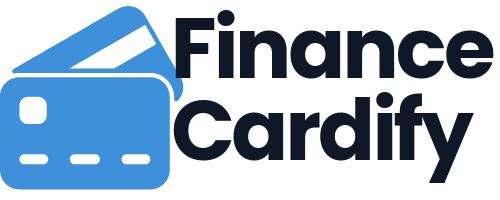In today’s complex economic landscape, financial education is more crucial than ever, impacting nearly every aspect of our professional and personal lives. From managing personal budgets to making corporate financial decisions, the ability to navigate financial systems effectively can dictate both individual success and corporate health. This comprehensive guide explores the importance of financial education, enriched with targeted SEO keywords to optimize organic search traffic, and concludes with a FAQ section to address common inquiries.
Understanding Financial Education
Financial education encompasses the knowledge and skills required to manage financial resources effectively. It is not just about learning how to save money; it’s about making informed decisions regarding saving, investing, budgeting, and spending.
Keywords: financial literacy, financial skills, managing finances
Benefits of Financial Education
Personal Life
Improved Money Management
Understanding financial principles allows individuals to make smarter decisions about spending, saving, and investing, leading to better financial stability and security.
Keywords: money management, personal savings, investment strategies
Debt Management
Financial education teaches individuals how to avoid excessive debts and manage existing debts more effectively, reducing financial stress and enhancing quality of life.
Keywords: debt management, credit score improvement, avoiding bankruptcy
Retirement Planning
With adequate financial knowledge, individuals can plan their retirement more effectively, ensuring a comfortable life post-retirement without financial dependency.
Keywords: retirement planning, pension funds, retirement savings
Professional Life
Enhanced Career Opportunities
Professionals with strong financial acumen are often considered for senior management roles and strategic positions within companies.
Keywords: career advancement, financial acumen, management roles
Better Business Decisions
Entrepreneurs and business owners benefit from financial education as it helps them make informed decisions that affect the profitability and viability of their businesses.
Keywords: business decisions, entrepreneurship finance, corporate health
Workplace Financial Wellness
Companies that invest in the financial education of their employees often see higher job satisfaction, lower turnover, and better workplace productivity.
Keywords: financial wellness programs, employee satisfaction, workplace productivity
Implementing Financial Education
Educational Programs and Workshops
Schools, colleges, and workplaces can implement educational programs and workshops to help individuals gain financial literacy from an early age.
Keywords: financial education programs, educational workshops, literacy courses
Online Resources and Tools
Numerous online platforms offer free or low-cost resources that provide valuable information on various financial topics, making learning accessible to everyone.
Keywords: online financial courses, financial tools, financial apps
Professional Financial Advice
For those who need more personalized guidance, professional financial advisors can provide tailored advice based on individual or business financial situations.
Keywords: financial advisors, personal finance advice, business financial planning
Frequently Asked Questions (FAQ)
Why is financial education important for young adults?
A1: Financial education is crucial for young adults as it prepares them to handle real-life financial challenges such as managing student loans, budgeting their first salaries, and planning future investments. It sets the foundation for a financially secure life.
How does financial education impact business success?
A2: Financially educated entrepreneurs and business managers are better equipped to make decisions that optimize costs, enhance revenues, and manage capital. This knowledge directly impacts the efficiency and profitability of businesses.
Can financial education reduce economic inequality?
A3: Yes, financial education can help bridge the gap in economic inequality by empowering individuals with the knowledge to make informed financial decisions, access financial services, and invest wisely, which can lead to wealth accumulation over time.


